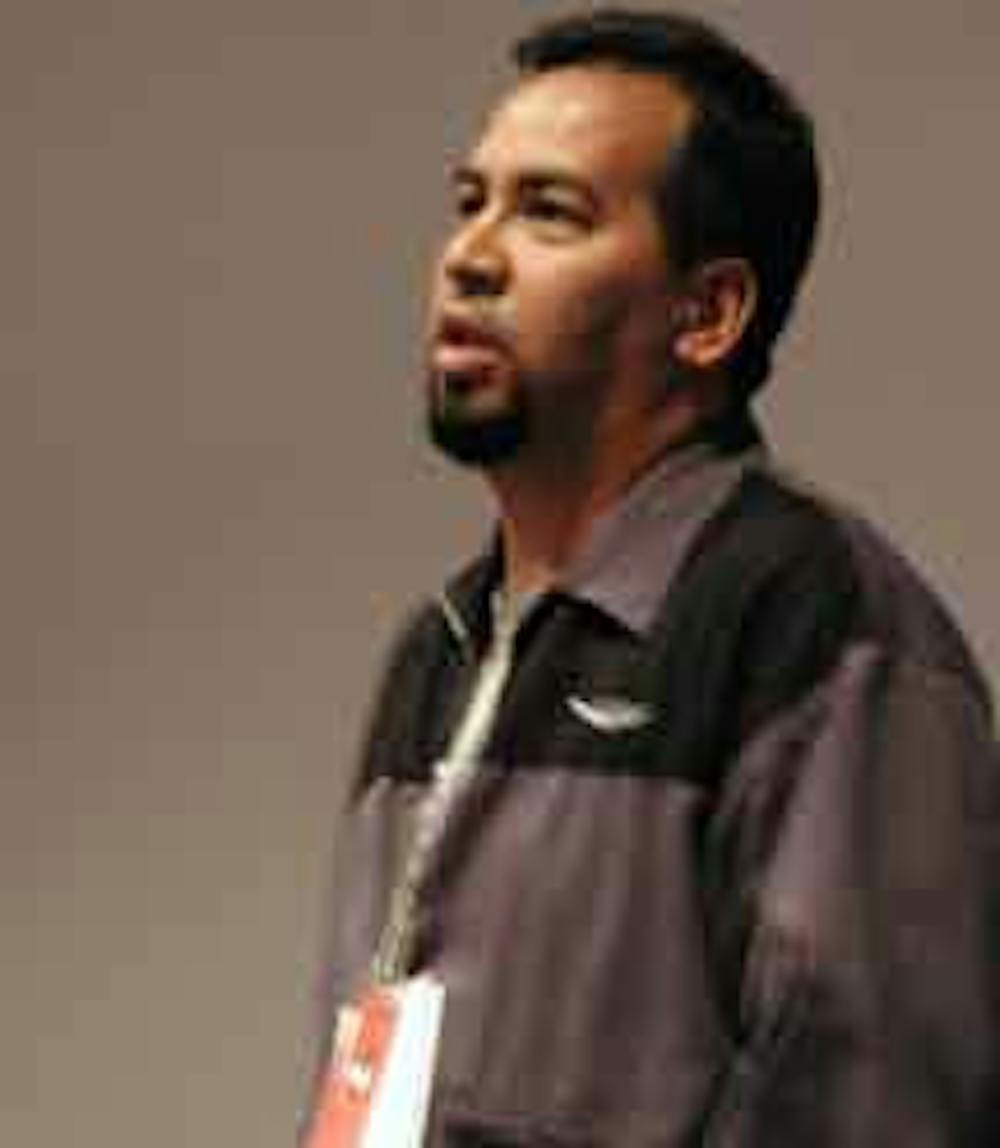The seat of your pants.
After three straight days of sitting in movie theaters at the 2002 Phoenix Film Festival, that's exactly what got sore. But for the filmmakers who showed off their work throughout the weekend, the phrase served as an explanation; for that's exactly what they went by.
The second-annual festival, hosted Friday through Sunday at the AMC Arizona Center theaters at Copper Square, was a celebration of low-budget cinematic gems. Most of the films screened were forged without heavy financial support and some were, literally, made for Hollywood pocket change.
The opening night film, "The Cat's Meow," starring Kirsten Dunst, was shot for a mere $6 million. In comparison, "Dead Dogs Lie"-- one of 12 films competing for the Copper Wings prize-- was made with a budget of $150,000.
Fans were treated not only to unheralded independent films, but also to a series of successful "late night" independents like "Reservoir Dogs" and "Sex Lies and Videotape."
Between constant movies, seminars, artist tributes- such as the one to Candy Clark of "American Graffiti"- and attending parties, the patrons to the Festival were kept in perpetual motion.
But compared to the red-carpet, black tie galas of Tinseltown, the festival was a blue-collar gig to commend the genuine hard work of independent filmmakers who followed their dreams to make movies.
ART FIRST, CASH SECOND
"This is real filmmaking," said actor Tommy Flanagan about "Dead Dogs Lie," in which he plays a kind-hearted hit man.
"It's not run by accountants and pencil-pushers in Hollywood," he said.
Flanagan had just finished shooting "Gladiator," in which he plays Maximus's (Russell Crowe's) servant, before joining New Jersey-based filmmaker Craig Singer on his project.
"Tommy comes from a world where he sits in a honey wagon and gets treated like royalty," Singer said. "But he was, literally, banging in sets, vacuuming floors and working 18 hour days.
"It was tremendous. It was like '60's filmmaking. It was very communal, and I think that shows."
Singer chose to use hand-held cameras for his entire film. Mixed with rich, deep monologs, the film offers many different camera speeds to complement the depth of script.
Cast and crew lived in the home of the director of photography to save money. But despite the financial situation, Singer and his team produced a film deserving of recognition because of the outstanding synergy between script and visual element.
"The challenge was to give it a visual sense so that it wasn't just 'My Dinner with Andre' with people talking," Singer said. "We made some conscious decisions to have visual language in addition to the dialog."
THIS TRULY 'AINT HOLLYWOOD
Without the heavy financial backing of a major studio, many of the filmmakers in attendance shared stories of how heightened creativity, rather than a fat pocket, helped them during the production process.
Chandler-based director Matt Lagman shot "Training Wheels," a romantic comedy laced with heavy drama, with a digital video camera for a budget of under $1 million. The film was made entirely in the Valley, and some scenes were shot in Tempe.
Editor Cheyenne Storm actually lived in a shed in Lagman's backyard in Chandler and did post-production work on a PC he built from scratch. Despite the fact that everyone involved with "Training Wheels" had to constantly improvise, the final product was far from mediocre.
"We didn't storyboard anything," Lagman said. "We had to combine some locations, we had to cut our budget, we had to cut our schedule.
"There's a lot of stuff that you have to do by the seat of your pants, but it becomes a good thing. It forces you to be really creative."
MINGLING WITH THE COMMON FOLK
Director Adam Baratta was moving in and out of the theater where his "Do it for Uncle Manny" was being screened.
Unlike most Hollywood directors, Baratta had no qualms about putting the seat of his pants on the floor of the theater, so he wouldn't interrupt anyone's viewing experience.
Fittingly, Baratta's film was about two friends who get sucked into a whirlwind adventure in Hollywood; a place where the director said "nothing is real."
Colin Mochrie and Louis Anderson were two major comedians, out of nine well-known actors, who agreed to do the film.
"I basically begged them to do my film," Baratta said. "They all worked for low-budget scale, which was really a miracle."
Actor Brian O'Halloran agreed with the directors who claimed that creativity and perseverance saved them from mediocrity.
"Everybody has their one horror story of what happened during production that nearly closed them down...," said O'Halloran, who played Dante Hicks in Kevin Smith's "Clerks."
"...and the one genius, lucky break or the greatest scam they pulled to get a certain location, or certain actor."
For more information on the 2002 Phoenix Film Festival, go to www.phoenixfilmfestival.com
RELATED LINK
April 5, 2002Phoenix Film Festival to run Friday through Sunday





